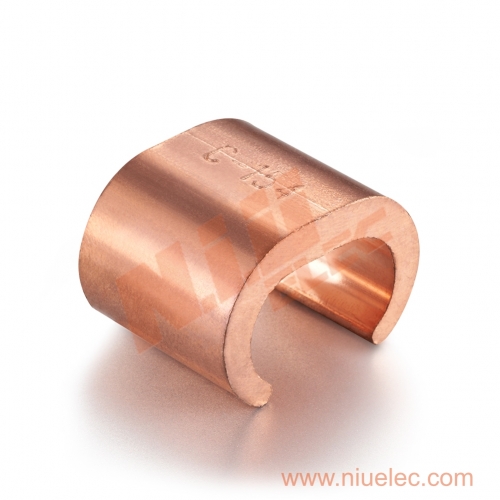By niuelec | 06 January 2025 | 0 Comments
Exploring Sustainable Practices Among Brass Connector Manufacturers
Sustainability is no longer an option but a responsibility for industries worldwide, including the copper and brass connector manufacturing sector. Manufacturers and suppliers of copper and brass connectors are now adopting innovative practices that significantly reduce their environmental impact while enhancing production efficiency. This blog explores key sustainable approaches within the industry and highlights the future of green manufacturing for connectors.
Table of contents:
How Manufacturers Are Reducing Waste in Connector Production
The Rise of Recyclable and Reusable Copper Components
Sustainable Sourcing Techniques for Brass and Copper Materials
Future Trends in Green Manufacturing for Connectors
How Manufacturers Are Reducing Waste in Connector Production
Copper connector manufacturers are implementing advanced techniques to reduce waste during production. Modern machining processes now allow for precise trimming of materials, minimizing leftover scraps that might otherwise go to waste. Additionally, some manufacturers adopt closed-loop systems that recycle unused materials directly back into the production line. For example, when creating products like the CCT C-Type Copper Connector, manufacturers select precise amounts of copper to avoid material inefficiencies while maintaining high performance. These waste-reduction initiatives not only lessen environmental harm but also lower operational costs, creating a win-win for companies and the planet.
The Rise of Recyclable and Reusable Copper Components
The demand for recyclable and reusable materials has never been higher, and copper, with its excellent recyclability, is leading the charge. Copper connector suppliers increasingly integrate recycled copper into their manufacturing processes without compromising product quality or performance. For instance, connectors such as brass-plated split bolts or copper compression connectors often derive a significant portion of their material from recycled sources. By doing so, manufacturers contribute to a circular economy where raw materials are continuously reused, significantly reducing the need for virgin resource extraction. This shift also appeals to eco-conscious consumers, creating a stronger market position for companies adopting these practices.Sustainable Sourcing Techniques for Brass and Copper Materials
Sourcing raw materials responsibly is crucial for sustainable manufacturing. Brass connector manufacturers are partnering with suppliers who adhere to ethical mining practices and prioritize traceable supply chains. Certifications such as the Copper Mark demonstrate a commitment to sustainable mining and processing, ensuring that extracted materials are produced responsibly. Additionally, many manufacturers favor local suppliers to cut down on transportation emissions, further integrating sustainability into their production framework. By taking these steps, manufacturers ensure that their operations have minimal environmental and social impact while maintaining high-quality standards in their products.Future Trends in Green Manufacturing for Connectors
The green revolution in manufacturing continues to evolve, with promising trends on the horizon for brass and copper connector suppliers. One such trend is the integration of renewable energy into production facilities. Solar panels and wind energy are increasingly powering manufacturing processes, reducing carbon footprints. Another innovation shaping the future is the use of AI and IoT technologies in manufacturing, which optimize resource usage and improve production efficiency. For example, AI-powered analytics tools are helping manufacturers predict material needs more accurately, cutting waste and enhancing sustainable practices. These advancements will likely become industry standards in the coming years, setting a new benchmark for eco-friendly manufacturing.The commitment to sustainable practices among brass and copper connector manufacturers is not just about meeting regulatory requirements. It’s about future-proofing businesses, addressing environmental challenges, and meeting growing customer demands for green products. By reducing waste, recycling materials, adopting sustainable sourcing practices, and exploring future green technology, manufacturers are redefining what it means to produce responsibly. As the world continues to prioritize sustainability, companies that invest in these practices will position themselves as leaders in the industry.
Leave a Reply
Your email address will not be published.Required fields are marked. *
CATEGORIES
TAGS